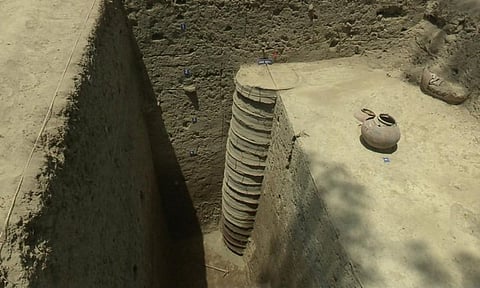

CHENNAI: The Archaeological Survey of India (ASI) on Thursday firmly denied allegations that it is intentionally delaying the publication of the excavation report on the Keeladi site in Sivaganga district, Tamil Nadu, calling recent media reports on the issue “misleading and untrue.”
In an official statement, the ASI said it follows a rigorous and well-established process for the publication of excavation reports.
“The Archaeological Survey of India regularly publishes reports of excavated sites under the aegis of the Director General. Each report undergoes vetting by subject experts, followed by revisions from the excavators before final publication as part of the ‘Memoirs of the Archaeological Survey of India (MASI),’” said Nandini Bhattacharya, Joint Director General of ASI.
She clarified that the same procedure was followed for the Keeladi excavation report.
“The draft report was reviewed by experts, and their suggestions were shared with the excavator. However, the excavator has not made the necessary corrections to the draft so far,” she added.
Bhattacharya strongly rejected suggestions that the ASI is disinterested in publishing the Keeladi findings.
“The claim that ASI is not keen on releasing the report is a complete fabrication. Every excavation involves significant investment and effort, and the ASI is deeply committed to documenting and publishing its results. Allegations to the contrary aim to wrongly tarnish the department’s image,” she said.
The ASI also described as routine a recent letter from the Director (Excavations & Explorations) to the Keeladi excavator.
“Such correspondence is standard practice and should not be misinterpreted,” Bhattacharya noted.
Urging responsible reporting, she added, “We request the media to understand the complexities involved in archaeological research and publication, and not rush to conclusions without verifying facts.”